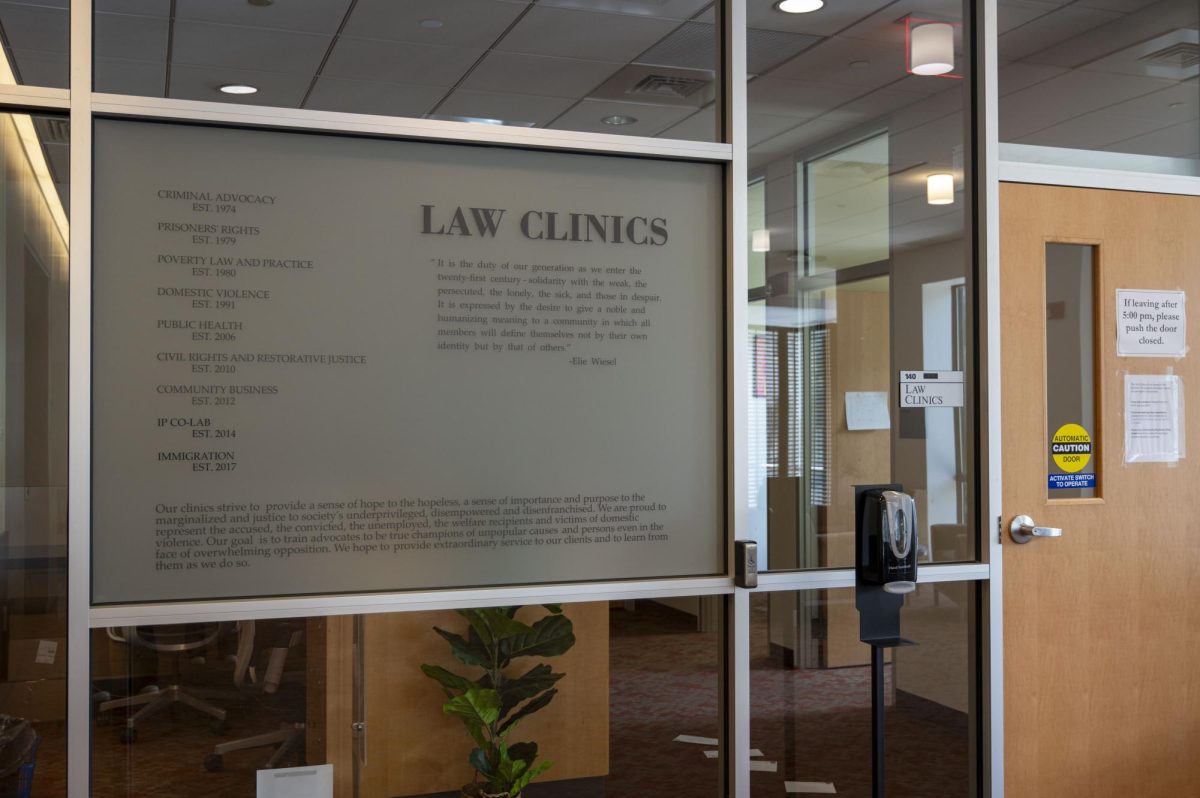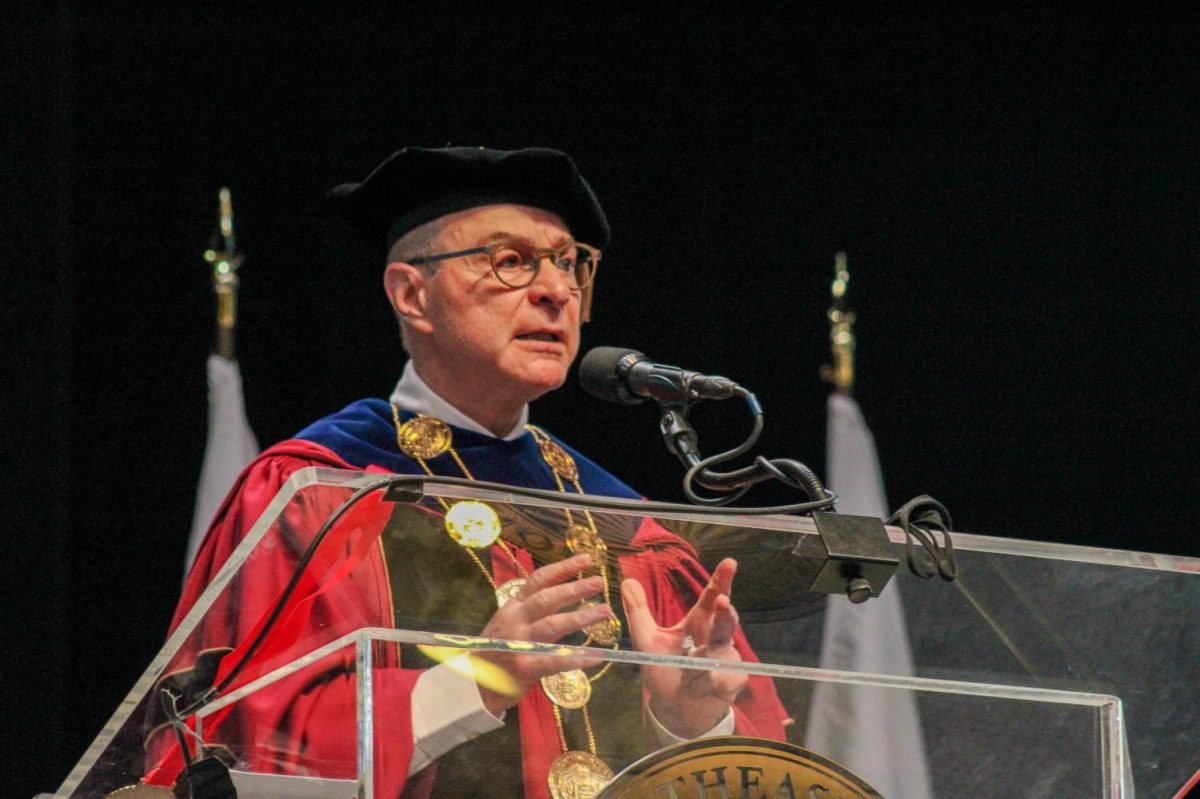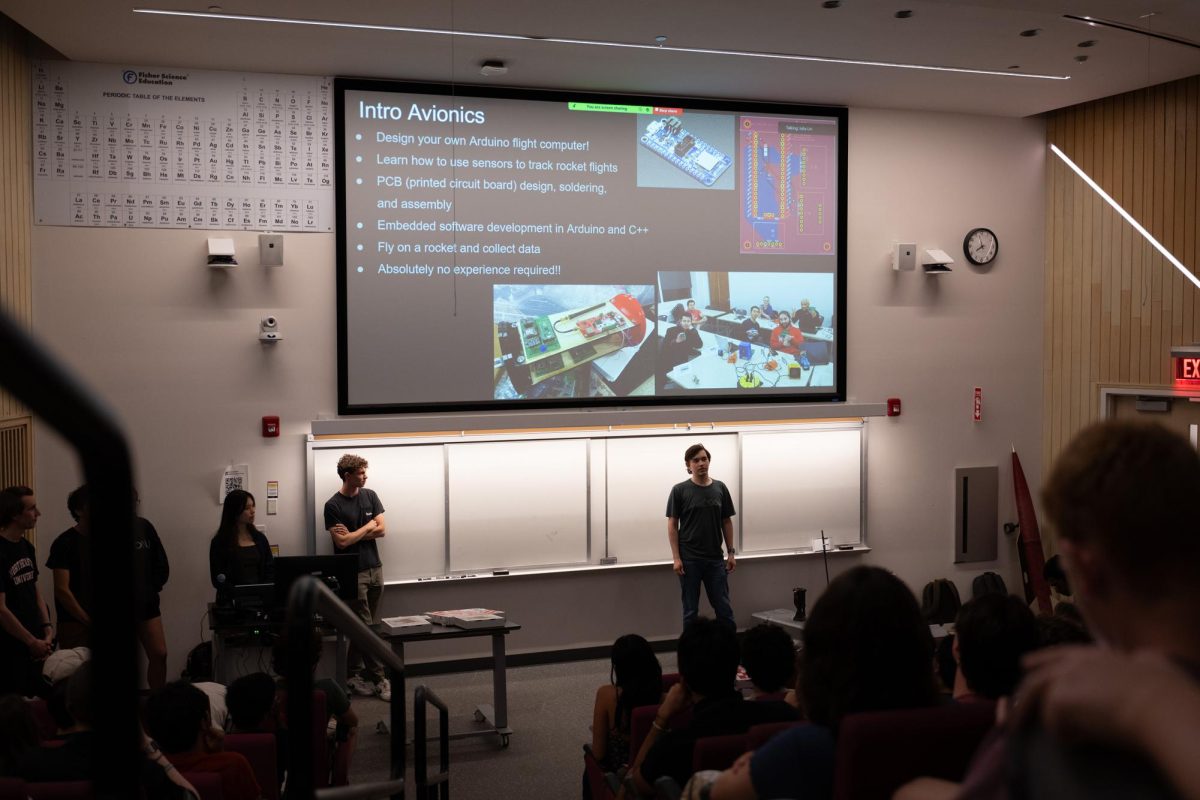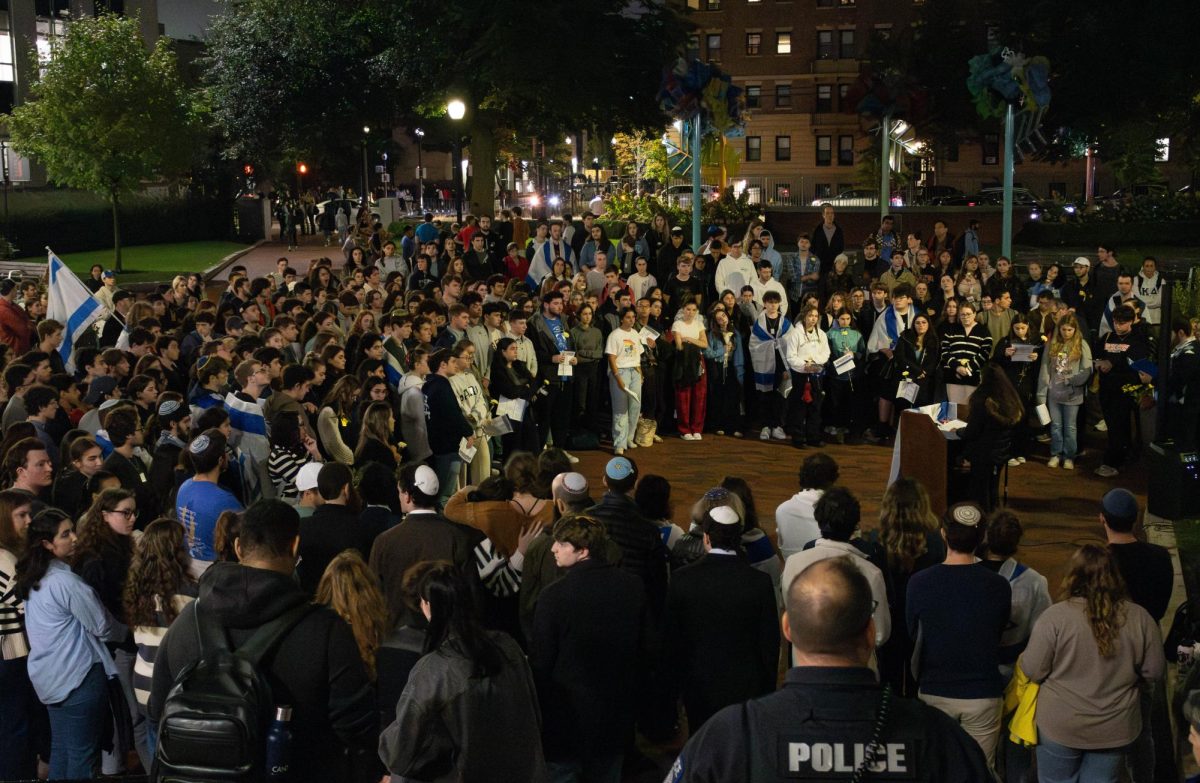For some college students who walked down South Huntington Avenue this weekend, strange chanting and intimidating drumming could be heard emanating from a field behind a red, wooden fence just before Heath Street.
Those who peeked through holes in the tall, graffiti covered wall could see grown men adorning colorful feathers and tribal dress, pounding the ground in a circle.
These rituals, however, are not foreign.
Three hundred Native Americans gathered this weekend to draw support for the North American Indian Center of Boston (NAICOB) at the fifth annual Gathering of the People Pow-wow. About 40 local college students attended as well.
“I got off at the wrong T stop and saw the sign saying everyone’s invited,” said Dany Shaffer, a middler anthropology major at Northeastern. “I’d seen the place before walking around Jamaica Plain and always wondered about it. This is my first pow-wow.”
Shafer said Northeastern featured a Native American anthropology class, but has not offered it in a while.
In 2003, former governor Mitt Romney decided to sell off “excess property” so the state would “extract the maximum value” of the land, according to the Jamaica Plain Gazette. Although NAICOB serves 6,000 constituents from 40 North American Indian nations a year with counseling, day care, health services, counseling and job training, it faced an impending deadline to sign a take-it-or-leave-it deal and move from the state-owned site.
Along with availability of food, Shaffer said he went to the pow-wow to enjoy the culture and learn about the community. He was surprised to hear that the gathering could be the last one on the ceremonial grounds.
“It was kind of a struggle to have this pow-wow,” said Cemelli de Aztlan, editor of the Eagle Whistle, NAICOB’s quarterly newsletter. “We had to publicize it at the last minute. Since there is a new owner of the land, this could be the last pow-wow here.”
With the support of the Jamaica Plain community, the leadership of NAICOB advocated support for the center at the State House and was able to secure the building for another 99 years and by paying dollar a year, but lost 1.1 acres of the original 1.8 acres.
The land that was lost was where the local Native American community held wedding ceremonies and fire circles. They also invited community members to pow-wows and sweat lodge events.
The new owner is planning on building high-end housing on the land. But the NAICOB plans to fight for use of the grounds – a Native is supposedly buried in a mound between the plot and the building, which could be protected by the Native American Graves Protection and Repatriation Act.
Some Native Americans have faced recent opposition to their use of the land, de Azteland said. About three weeks ago, several homeless Native Americans who used the ceremonial grounds for years as a place for sleep and respite were removed by police, he said.
Sixteen students from Boston University’s Howard Thurman Center for cultural learning and collaboration attended the pow-wow.
“It’s important to learn first hand from the Native American community,” said Raul Fernandez, assistant director of the Thurman Center. “A lot of the stuff written in the text books doesn’t express their history in a complete and accurate way. We are taught that [Christopher] Columbus was great.”
Despite their ethnicity, some Native American college students attended the pow-wow looking for support among peers.
“For non-Native students, it’s for understanding,” said Jonathan Romones, a senior at UMass Boston and a member of his university’s Native American Student Society. “Our country’s foreign policy today is the same as how we treated Native Americans.”
Romones is one of 22 college students who are active members at NAICOB. He is currently trying to start a more encompassing group, called the Indigenous Student Society of Boston, for young people.
Romones said his student group at UMass lauds recent recognition of Massachusetts tribes, but tries to understand the positive and negative effects of casinos in communities. His group supports a Declaration of Indigenous Rights, which was adopted by the United Nations last week but faces opposition from the United States, Canada, Australia and New Zealand.
“People usually only know Native Americans for what they read in the newspaper or on the television. I wish more people would come to these events to put a face toward the issues,” Romones said. “When I started in my college group, we only had one non-Native member. Now there are five.”
NAICOB is currently fundraising to rebuild or renovate the center, which was once a detention center for girls and was declared unfit for state employees in the early 1970s.









